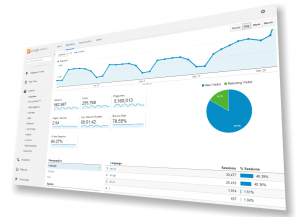 Google AdWords is a unique advertising product which has revolutionised the way in which businesses direct traffic to their website. The program offers a quick and easy way of skipping the hard work of Search Engine Optimisation (SEO) and appearing on the first page of Google’s search results. This being said, AdWords tends to be more expensive than SEO and there are many potential pitfalls which can cost users valuable time and money. The following are just some of the more common and costly AdWords mistakes made by businesses and ways in which to combat these problems.
Google AdWords is a unique advertising product which has revolutionised the way in which businesses direct traffic to their website. The program offers a quick and easy way of skipping the hard work of Search Engine Optimisation (SEO) and appearing on the first page of Google’s search results. This being said, AdWords tends to be more expensive than SEO and there are many potential pitfalls which can cost users valuable time and money. The following are just some of the more common and costly AdWords mistakes made by businesses and ways in which to combat these problems.
Not Using the Right Tools
Google Analytics is an invaluable tool when it comes to very specific consumer data. Many businesses will only check their general results, e.g. clicks per ad, conversion per ad etc. but they risk losing out on much more detailed information.
O ne of the more useful aspects of Analytics is that it can tell you what customers are doing when they are actually on your website. This can provide a unique insight into your client base and the relationship between them and your overall AdWords campaign.
ne of the more useful aspects of Analytics is that it can tell you what customers are doing when they are actually on your website. This can provide a unique insight into your client base and the relationship between them and your overall AdWords campaign.
Setting up Google Analytics couldn’t be easier and the potential consumer information is too good to pass up.
Directing to your homepage
When a potential customer clicks on your advertisement, they want to be directed to the part of your website that is relevant to what they have searched for. Many companies link all of their results to their homepage but this can be frustrating for customers. They then have to seek out the particular product or service they were looking for and many will lose interest in the process or not bother at all. This means that businesses could be receiving a lot of interest from customers but have a low conversion rate due to something as simple as page linking.
To ensure that you aren’t missing out on conversions, make sure to link all of your ads with the specific product or service they are advertising.
Refusing to Change your Copy
The interest you are getting from customers isn’t always proportional with the quality of your copy. Sometimes other factors are more important, for example the type of keywords you are using or the overall clarity of your ad. Some AdWords users refuse to change the copy they have produced, even when it’s not garnering interest and making money for them.
The only way to tackle this problem is through comprehensive and continuous testing. Change single components at first such as the headline or the body and then see what this does to your results. It is worth noting that preferred results will be different for everyone, some will want a higher click rate whilst others will favour a higher conversion rate.
Too Many Keywords
Many companies seem to be under the impression that more is better when it comes to keywords but this isn’t always the case. Utilising a large variety of keywords can create a campaign that is too broad and too general. This can also be a particularly expensive technique and without any revenue coming in, the is just being wasted.
Businesses should instead focus on their more successful keywords and build their advertising strategy around them.
Not Grouping Keywords Together
Google allows users to group specific keywords together in order to create separate ad campaigns. However, some companies don’t utilise this tool and group all of their keywords within a single category. The problem with this is that customers are going to receive general ads for very specific search queries and unlikely to click on your links.
Grouping your keywords together into separate ad groups is quick, easy and could completely transform your AdWords experience.
Clicks vs Conversions
Not every customer that clicks on an ad will then go onto purchase something from the host website. It is for this reason that clicks and conversions can differ greatly across different keywords. For example one keyword could attract a large amount of clicks but very few conversions whereas another keyword might not be clicked on very often but when it does it’s likely to lead to a sale. The ideal situation would be to find a keyword that attracts both clicks and conversions but this can be extremely difficult.
This situation will be different for every company and specific considerations will have to be taken into account when deciding on strategy. The only real way to ascertain which keywords will deliver is through trial and error and the utilisation of tools such as Google Analytics.

